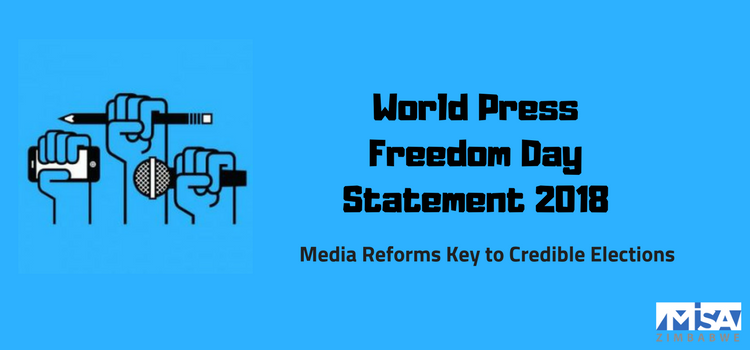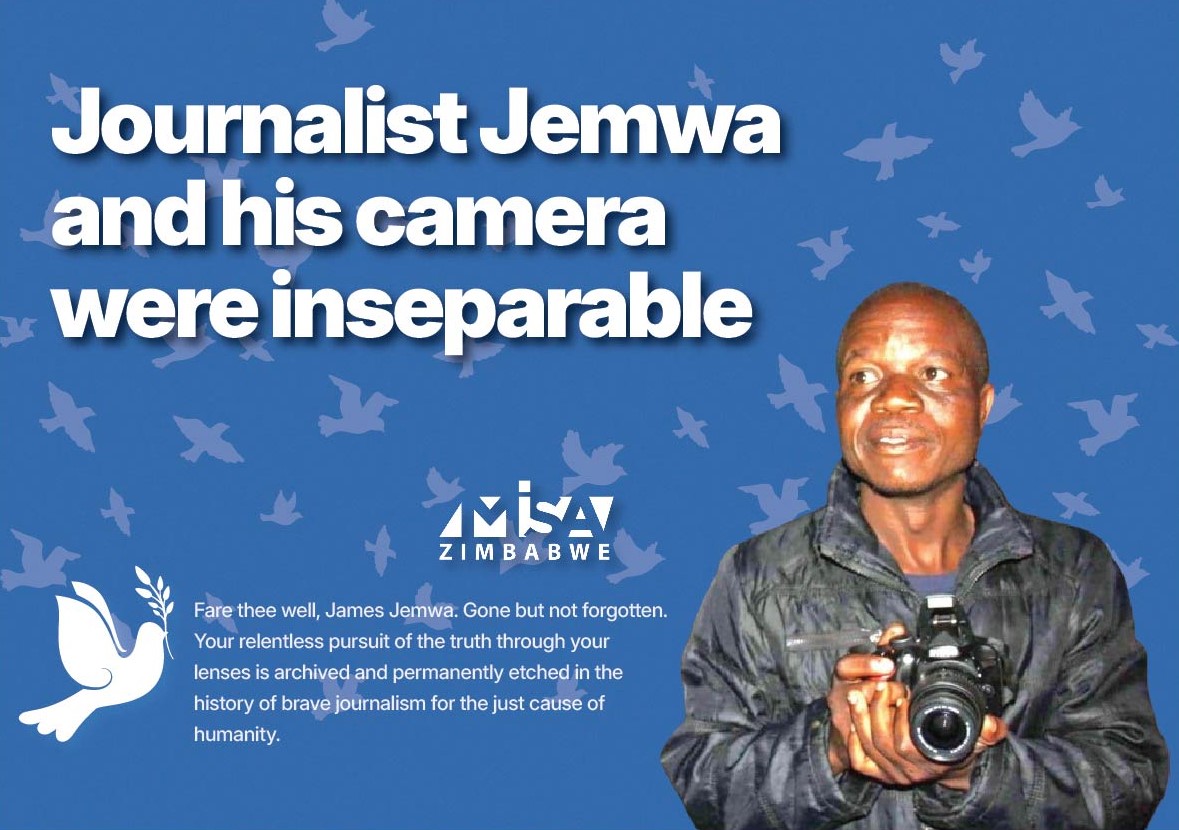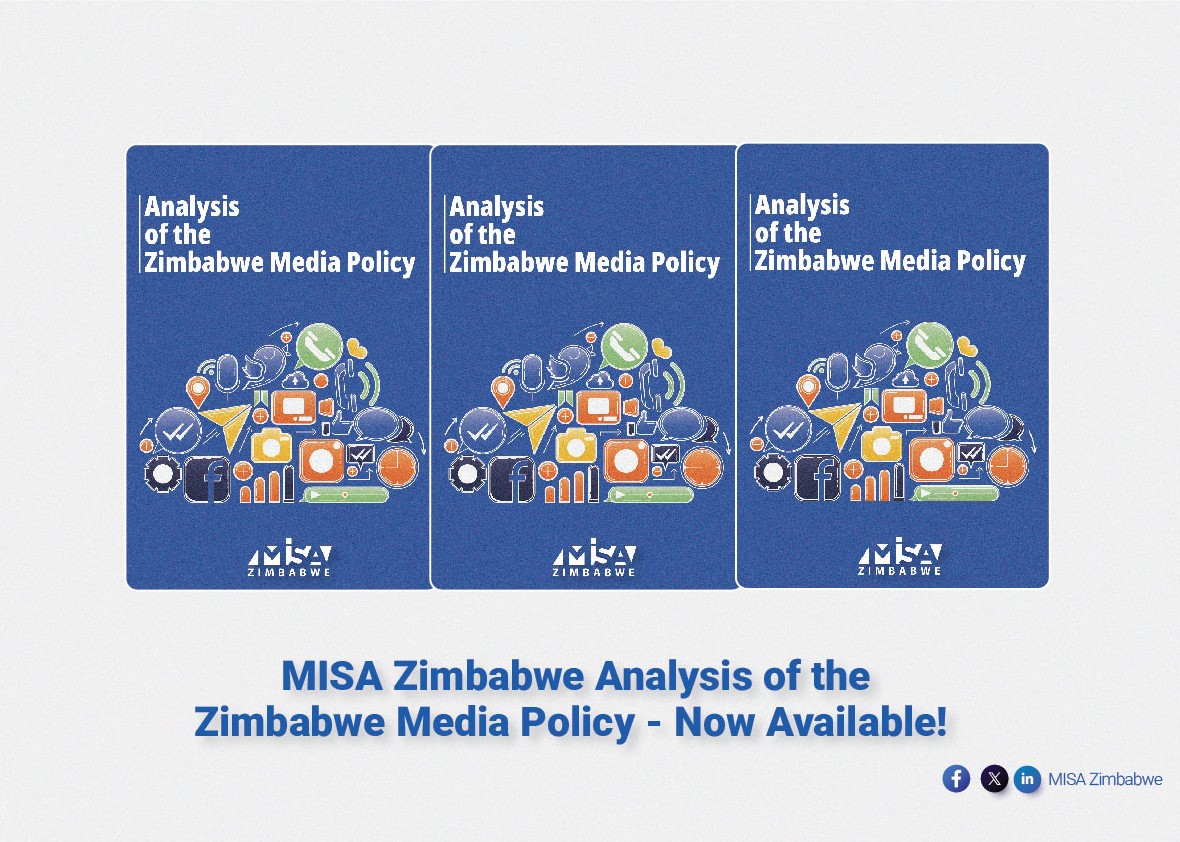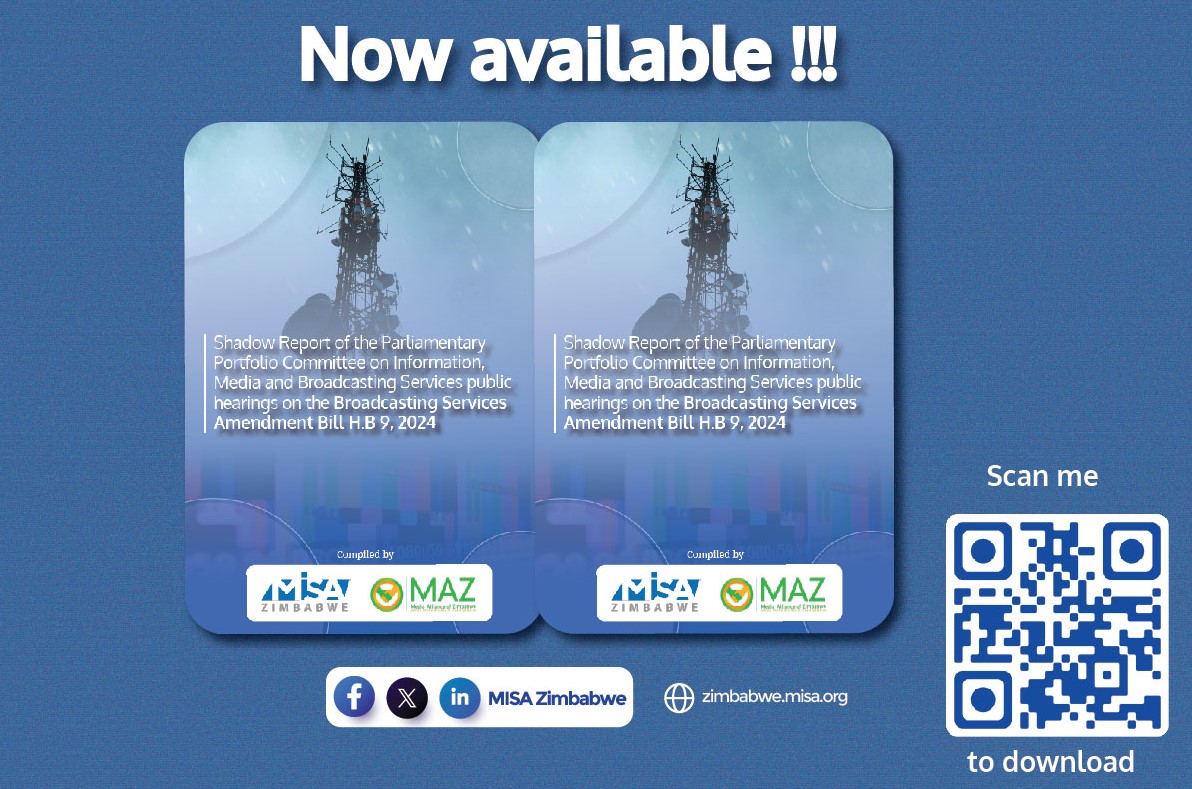This year’s World Press Freedom Day commemorations, coming on the verge of Zimbabwe’s elections, pose the greatest test to government’s commitment to constitutional democracy underpinned by democratic media laws.
In saying this, MISA Zimbabwe is mindful of President Emmerson Mnangagwa’s inauguration speech in November last year during which he pledged to strengthen and respect the pillars of democracy.
Regrettably, five months into his tenure, Zimbabwe is still stuck with repressive media laws such as the discredited Access to Information and Protection of Privacy Act (AIPPA), Broadcasting Services Act (BSA) and Official Secrets Act (OSA).
Other restrictive laws include, the Public Order and Security Act, Censorship and Entertainment Controls Act (CECA), and sections of the Criminal Law (Codification and Reform) Act. This situation should also be viewed against the government’s accelerated efforts to introduce the cybercrimes laws, generally perceived as intended to curb free speech online.
These laws essentially curtail citizens’ rights to freedom of assembly and association, demonstrate and petition, including the right to freedom of conscience, as provided for by Sections 58, 59 and 60 of the Constitution. As well as Sections 61 and 62 which protect the right to free expression, media freedom and access to information.
Our theme: Media Reforms Now: Free and Accountable Media Key to Credible Elections, is a reminder to government on the urgency and importance of implementing the outstanding reforms ahead of the elections.
This theme and our exhortations for government to play ball, also ride on UNESCO’s 2018 theme: Keeping Power in Check: Media, Justice and the Rule of Law.
Our position on the issues at hand, are further informed by the African Union Elections Observer Mission’s (AUEOM), post-2013 elections recommendations on improving the state of the media in Zimbabwe.
The AUEM singled AIPPA, BSA and POSA, as some of the contentious laws which curtail fundamental freedoms. It also recommended that the Zimbabwe Electoral Commission “scrupulously enforces” relevant regulations of the Electoral Act to afford alternative voices and all political parties equitable access at all times during elections.
Transformation of the Zimbabwe Broadcasting Corporation into a truly independent, accessible and representative public broadcaster, thus remains of urgency.
While we commend the government for signing the African Charter on Democracy, Elections and Governance, the government should, without any further delays, adopt and effect its relevant clauses into domestic laws and policies.
In turn, the media should at all times, strive to inform the public on issues of the day accurately and fairly as dictated by the profession’s code of ethics. Voters look up to the media to inform them factually and fairly on the various parties, policies and personalities for them to make informed decisions and choices on who to elect into public office.
Security authorities and political parties, should also ensure the safety and security of journalists conducting their lawful professional duties during and after this election period.
Meanwhile, the government cannot continue to dither and prevaricate on these reforms, five years after the coming into being of the 2013 Constitution which provides for the rights to freedom of expression, access to information and privacy, among others.
Instead, the government should:
- Ensure its proposed cyber-crimes and cyber-security laws do not infringe civil liberties.
- Ensure a safe working environment for journalists and media workers.
The Broadcasting Authority of Zimbabwe should call for applications for community radio stations and license successful applicants as provided for by the Broadcasting Services Act.
Our demands in that regard, are Just and Legitimate!
MEDIA REFORMS NOW!
End
Golden Maunganidze
Chairperson
MISA Zimbabwe
84 McChlery Drive
Eastlea, Harare
Zimbabwe
Telephone: +263 4 776165/746838
Email: misa@misazim.co.zw
Twitter:@misazimbabwe
Facebook: MISA Zimbabwe
Website: www.misazim.org













